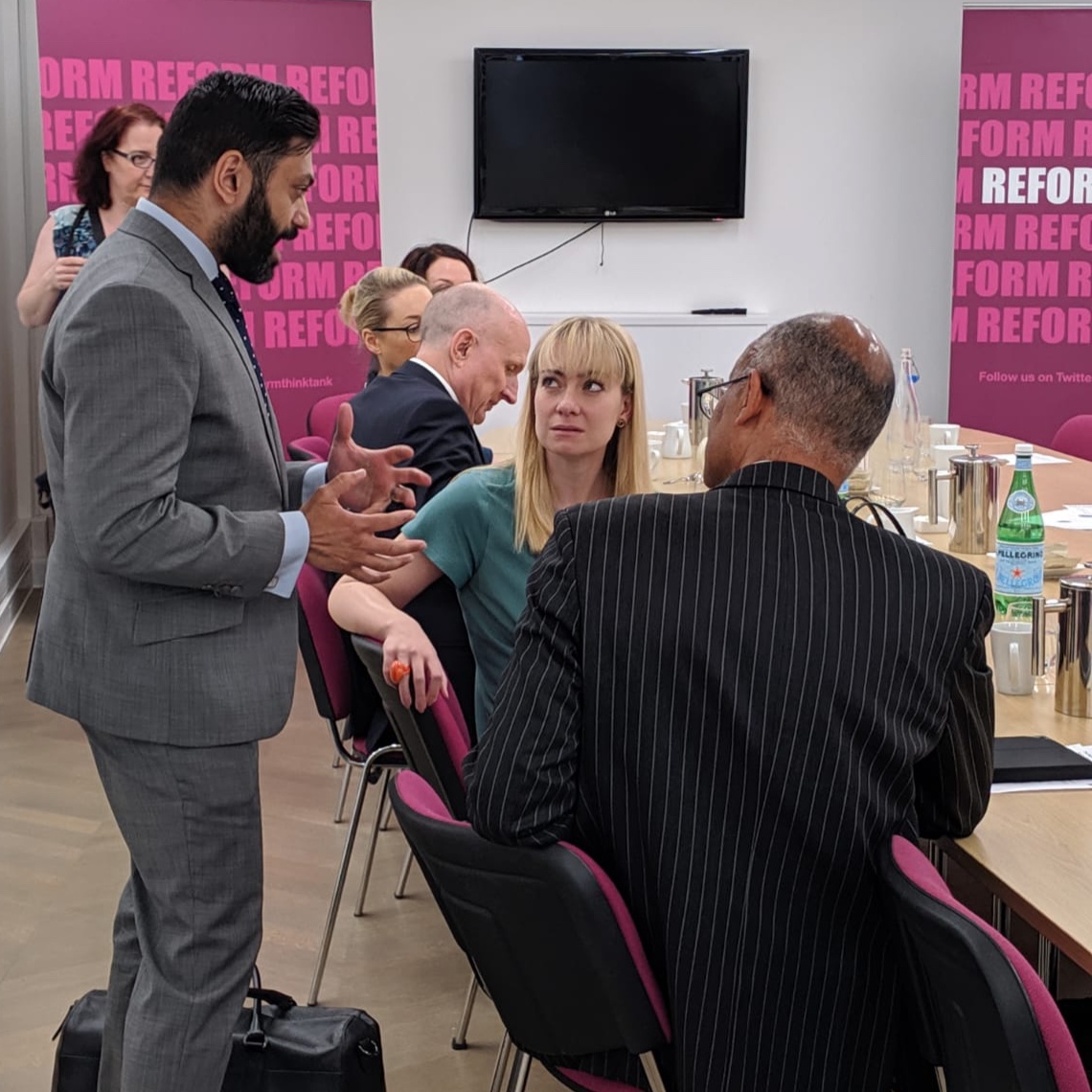Reform: 'Big Data in Health Transformation'
I was delighted to open the Reform Roundtable on ‘Big Data and the Transformation of the NHS’.
I am determined, as is pretty much every politician in the country, for the UK to be at the forefront of the development of Big Data and AI and healthcare.
But I am mindful that while we have a brilliant academic and industrial science base, already developing world leading big data solutions - this is an exceptionally competitive field.
First, we need to do the basics right. We will continue to invest heavily in our science base in this area. Under our flagship Industrial Strategy programme, Artificial Intelligence and Big Data will be one of four major priority areas, with two others – the future of mobility and the ageing society, also relying heavily on big data solutions.
Second, we must get our health data infrastructure right. As part of the Lifesciences Sector Deal we are investing £37m in new Data Innovation Hubs to create 5 disease specific datasets and accelerate clinical trials and a further £80m to recruit 5 million healthy volunteers to create a new dataset to accelerate diagnosis of chronic diseases like diabetes, dementia, cancer and cardiovascular disease.
Third, we are increasingly combining our work on Artificial Intelligence and Big Data with other related fields – such as genomics. Over the next five years the NHS will sequence one million whole genomes and a further five million genomes, this will be directly integrated into clinical care as part of the Genomic Medicine Service.
Indeed one of the reasons we are developing the National Genomic Health Strategy is to ensure that as this work proceeds at pace we consider, along with clinical, ethics and patient experts, the issues that arise carefully to ensure it meets the highest ethical, data-sharing, regulatory and clinical standards.
Getting the NHS on Board
While we know that some Trusts are brilliant at tech transformation, and are already realising real value for patients through digital solutions. We also know this is not happening widely enough, and it is still too difficult for innovative new technologies to spread across the system.
That’s why we’ve established NHSX – to lead tech transformation across the system, and set the very highest standards on areas such as interoperability. We realise it won’t be easy to do this, and that’s why we’ve hired Matthew Gould, the former British Ambassador to Israel, to lead it.
Through our Code of Conduct for Data Driven Technologies, we are also making the rules of the game much clearer – and adding much needed transparency for companies in how to deal with the NHS. Our new Accelerated Access Collaborative will also provide bespoke, targeted support for the best new technologies, including digital solutions, to be spread rapidly across the NHS.
We are also empowering NHS staff. The Topol Review, published in February, set out how the selection, education and lifelong learning of NHS staff needed to change in light of the development of Genomics, AI and robotics.
I’m pleased that many of the recommendations from the Review have already been taken forward under the Interim NHS People Plan, and myself and the Secretary of State will continue to drive this forward – so that all NHS staff, from the porter, to the nurse, to the doctor, to the manager – understand emerging technologies, and can utilise them to improve patient outcomes and make health systems more efficient.
Trust
All of this is dependent on gaining and retaining the trust of the public and clinicians in data and emerging technologies as they develop.
Patients want the NHS to be world leading and innovative. They intuitively understand what has now been extensively proven, that clinicians and hospitals that are research active and embrace innovation provide higher quality care.
Our regulators will play an important role here. As new technologies are developed, patients rightly expect them to be safe, but also cost effective and supported by a strong evidence base. MHRA and NICE have a global reputation for independence and rigour - in order to keep up our regulators must be responsive and ahead of the innovation curve.



